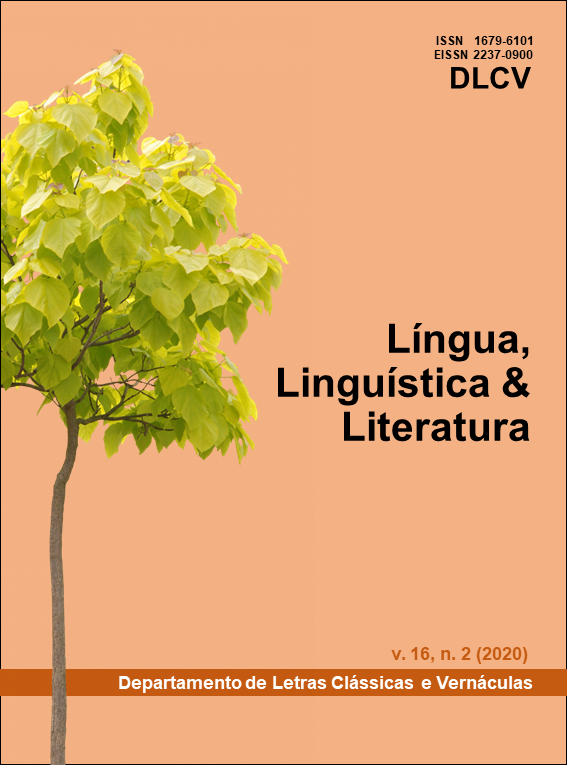From Childhood to Youth in Noturno sem Música, by Gilvan Lemos
DOI:
https://doi.org/10.22478/ufpb.2237-0900.2020v16n2.48999Abstract
The representation of the stages of human life is one of the main aspects of the work of the Brazilian writer Gilvan Lemos. Lemos’s first novel, Noturno sem Música, contemplates such a problem. Jonas, a first person narrator, is also the main character of the narrative. He shows the odds of growing, as well as the generation conflicts caused by it. By following the author’s career, a critical perusal of the novel is made. The investigation concentrates on the perceptions of the narrator and of the protagonist about themselves and about the elder; in a mode which contrasts past and present. Childhood, youth and old age are problematised with the help of studies by Buenaventura Delgado (1998), Bosi (1987) and Elias (2001). Narrative time is characterised with the contribution of Mendilow (1972) and Pouillon (1974).
Downloads
Downloads
Published
How to Cite
Issue
Section
License
Copyright (c) 2020 DLCV - Língua, Linguística & Literatura

This work is licensed under a Creative Commons Attribution-ShareAlike 4.0 International License.
Ao submeter originais a este periódico, o autor está automaticamente concordando com as diretrizes editoriais da Revista do DLCV e, além disso, cedendo os direitos autorais relativos aos trabalhos publicados, mantendo para si os créditos da propriedade intelectual e/ou cultural.























